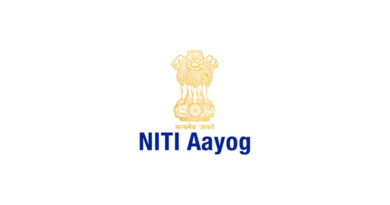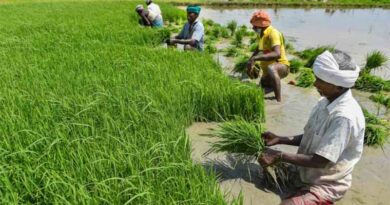As farmers dig in on MSP, govt experts point out cons
27 November 2021, New Delhi: Even as farm unions are pitching for a legal guarantee to minimum support price (MSP), experts in the government say that legalising MSP to procure 23 crops would disrupt the market equilibrium, drive out private trade, and lead to inflation and a decline in agricultural exports.
Officials feared that farmers would actually be hit and cited Niti Aayog’s working paper on farm reforms to argue that liberalised markets were more favourable to growth than government support and interventions in the market over a period of time.
Niti Aayog member Ramesh Chand noted in the paper that segments like horticulture, milk and fishery (where market intervention by the government is either nil or very little) showed 4- 10% annual growth whereas the growth rate in cereals, where MSP and other interventions are quite high, remained at 1.1% after 2011-12. Besides, there is a peaking of benefits with cereals.
Chand cited the example of Maharashtra, where an experiment of legal intervention for ensuring MSP in 2018 failed, forcing the state government to abandon the initiative. “Economic theory as well experience indicates that the price level that is not supported by demand and supply cannot be sustained through legal means,” said Chand, an agriculture economist.
He, however, kept the floor open for suggestions, saying if according legal or mandatory status ensured MSP to farmers, it would be the easiest way for any government to help farmers get desired prices. This could be done by state governments without central intervention, he said and cited the example of Kerala, where the state government last year announced minimum prices for 16 fruits and vegetables.
The paper, quoted extensively by officials in the ministry, also cited the example of sugarcane — where the support price (fair and remunerative price) is the statutory minimum price — and pointed out the accumulation of thousands of crores in arrears as private sugarmills could not find FRP for sugarcane matching with sugar prices.
Referring to practical difficulties in getting the private sector on board for buying at legally guaranteed MSP, officials said the higher procurement cost would mean increase in prices of foodgrains, leading to inflation, which would eventually affect the poor.
“It will also impact India’s farm exports, accounting for 11% of the total exports of commodities, if the MSP is higher than the prevailing rates at international markets,” said officials. They also said that since the government would have to procure all marketable surplus in the absence of private participation, it would lead to a huge burden on the exchequer.
Officials have not backed their claims with specific data but farmers said the government would not be spending more than an “additional amount” of Rs 1 lakh crore annually if it decided to buy the entire marketable surplus.















